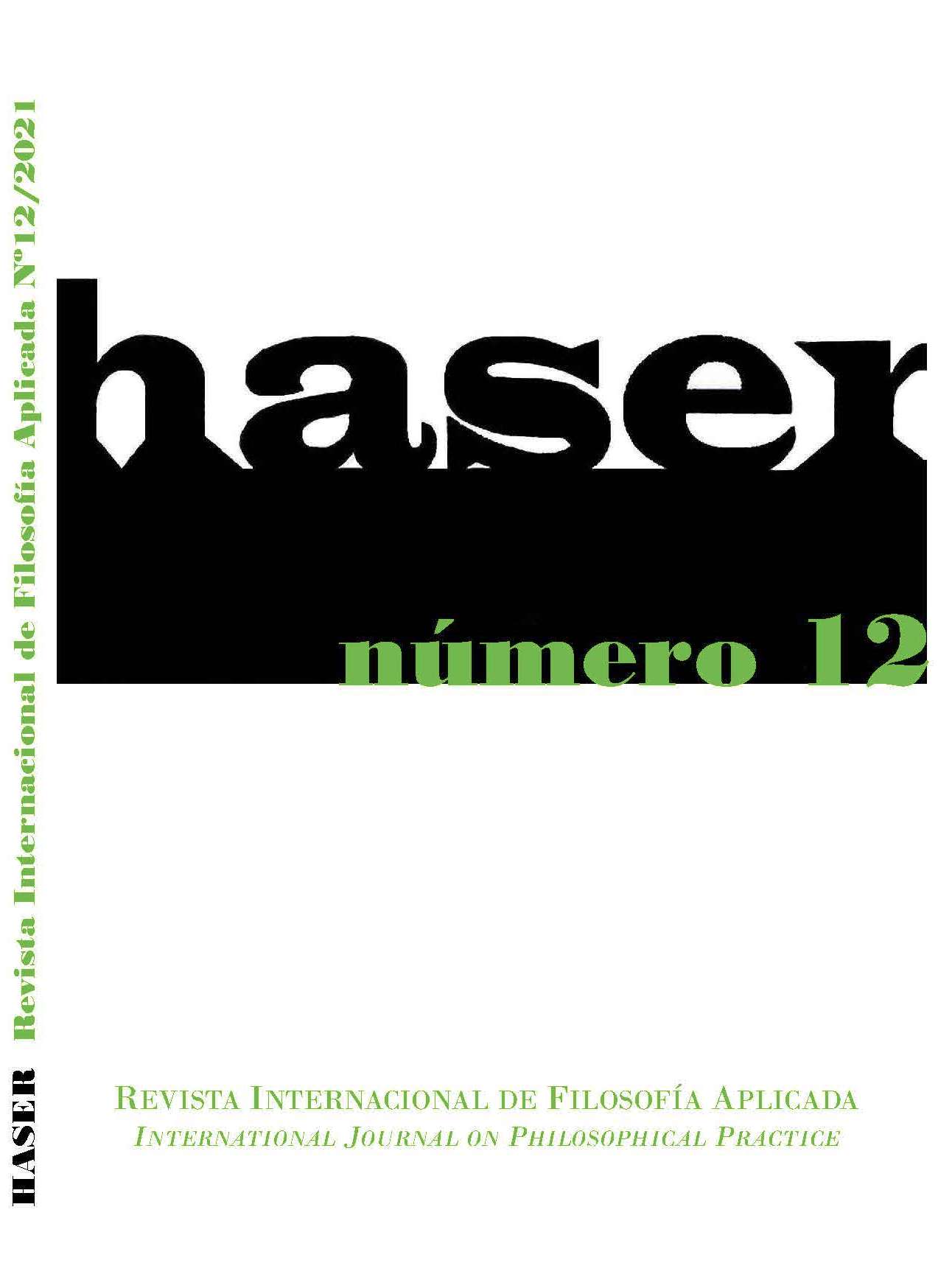PHILOSOPHISING TOWARDS WISDOM AS NURTURING THE TREE OF LIFE IN US
Resumo
In this essay the author poses the hypothesis that the metaphor “to philosophise is to nurture the Tree of life in us” is a better metaphor than “to philosophise is to cease living” when it comes to conceptualizing what people might experience when philosophising the so called “Dialogos Way”. First, the author outlines different usages of the Tree of life metaphor. In line with reflective practice research methodology, she then explores how the metaphor corresponds to the Dialogos approach as a process- and wisdom oriented form of philosophical practice. Further, through original reflection, she narrates six examples from her experience as a philosophical practitioner. From this, six themes are extracted through critical reflection: aha-experience, peak-experience, heart-to-heart synchronization, life-guiding concepts, plateau experience and pluralism. The themes are then reflected upon theoretically and generally. Summing up, the participants seemed to have experienced forms of psychological growth rather than psychological suffering and “death” through participation in Dialogos dialogue series or workshops. The author concludes that even though the long term aim of philosophy might well be to cope with death, and even though philosophising might imply practicing “dying” through letting go of one`s more or less well founded opinions and stances, this might lead to a new “birth” and thus to psychological growth rather than psychological suffering and death, supporting the initial hypothesis.
Downloads
Downloads
Publicado
Como Citar
Edição
Seção
Licença
Los autores/as que publiquen en esta revista aceptan las siguientes condiciones:
1. Los autores/as conservan los derechos de autor y ceden a la revista el derecho de la primera publicación, con el trabajo registrado con la licencia de atribución de Creative Commons, que permite a terceros utilizar lo publicado siempre que mencionen la autoría del trabajo y a la primera publicación en esta revista.
2. Los autores/as pueden realizar otros acuerdos contractuales independientes y adicionales para la distribución no exclusiva de la versión del artículo publicado en esta revista (p. ej., incluirlo en un repositorio institucional o publicarlo en un libro) siempre que indiquen claramente que el trabajo se publicó por primera vez en esta revista.
3. Se permite y recomienda a los autores/as a publicar su trabajo en Internet (por ejemplo en páginas institucionales o personales) antes y durante el proceso de revisión y publicación, ya que puede conducir a intercambios productivos y a una mayor y más rápida difusión del trabajo publicado (vea The Effect of Open Access).
- Resumo 129
- PDF (Español (España)) 135


